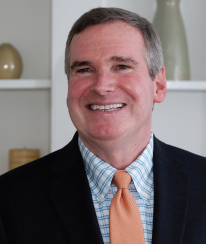 John Hamilton will speak on the field of addiction treatment and prevention. He is nationally recognized as an expert in this field. He brings three decades of experience to his role as president and CEO of Liberation Programs and also chairs the Advisory Board for the Connecticut Department of Mental Health and Addiction Services and serves on the Governor’s Alcohol and Drug Policy Council. Previously, John was chief clinical outreach officer at Mountainside Treatment Center, a nationally acclaimed drug rehabilitation center with locations in New York and Connecticut. He served as CIO of Recovery Network of Programs, a nonprofit behavioral health agency serving the Greater Bridgeport Community. John is past chair of the Dissemination Committee for the National Institute for Drug Abuse Clinical Trials Network, past chair of the Community Treatment Providers Caucus, past president of the Southwest Connecticut Mental Health Board, past president of the New England Association of Drug Court Professionals and co-founder of the Greenwich Father’s Forum. In 2013, John was a recipient of the American Association for the Treatment of Opioid Dependence Nyswander-Dole Award for his contributions to the field of addiction treatment.
John Hamilton will speak on the field of addiction treatment and prevention. He is nationally recognized as an expert in this field. He brings three decades of experience to his role as president and CEO of Liberation Programs and also chairs the Advisory Board for the Connecticut Department of Mental Health and Addiction Services and serves on the Governor’s Alcohol and Drug Policy Council. Previously, John was chief clinical outreach officer at Mountainside Treatment Center, a nationally acclaimed drug rehabilitation center with locations in New York and Connecticut. He served as CIO of Recovery Network of Programs, a nonprofit behavioral health agency serving the Greater Bridgeport Community. John is past chair of the Dissemination Committee for the National Institute for Drug Abuse Clinical Trials Network, past chair of the Community Treatment Providers Caucus, past president of the Southwest Connecticut Mental Health Board, past president of the New England Association of Drug Court Professionals and co-founder of the Greenwich Father’s Forum. In 2013, John was a recipient of the American Association for the Treatment of Opioid Dependence Nyswander-Dole Award for his contributions to the field of addiction treatment.
Arranged by John Bassler
Bryan Hooper’s notes on the talk:
John Hamilton spoke to us about developments in the drug business which have exacerbated the already tragic number of deaths by overdose, and of the way his programs are helping addicts to recover and re-integrate themselves into a more stable and productive life.
Last year in Connecticut there was an increase of at least 13% in deaths by overdose confirmed, and that could rise to 17% once all cases under investigation are resolved; that number is comparable to the previous year-on-year increase. There was a change in the drug of choice three years ago from oxycontin and similar products toward heroin as the latter became increasingly purer – 91% vs. 10% thirty years ago – but alternative more powerful opioids, such as fentanyl, have been growing in use over the past two years, and this is the epidemic we are now facing. A further concerning development has been the introduction of xylazine, used originally as a veterinary product, being combined with fentanyl to produce an even more powerful drug. Deaths involving fentanyl now comprise at least 85% of the annual total.
John went into an analysis of the reasons for doing drugs, and indicated that research showed many use drugs to make them feel good, and to share those feelings and sensations and to connect; but, this behavior does not tend to end in addiction. Those who become addicted take drugs essentially to feel better, to help overcome anxiety, worry or depression, and to withdraw from others and become disconnected. In the past year the advent of the pandemic has resulted in more separation for the majority of people and this in turn has increased the pressures on those already under stress.
Treatment therefore involves efforts to reconnect addicts to society with behavioral therapies and recovery support services, in conjunction with providing medication and detoxification programs.
John described the operations of Liberty Programs to provide this assistance: the agency has sites in Greenwich, Stamford, Norwalk and Bridgeport and served more than 2,400 individuals in their last fiscal year. You can learn more about the organization by visiting their website at liberationprograms.org, and you can watch the video of John Hamilton’s presentation at: https://youtu.be/2XGrhb6Bke0.
